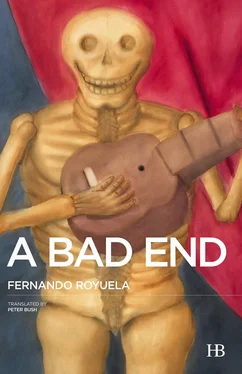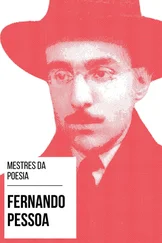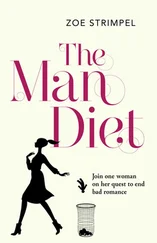Fernando Royuela - A Bad End
Здесь есть возможность читать онлайн «Fernando Royuela - A Bad End» весь текст электронной книги совершенно бесплатно (целиком полную версию без сокращений). В некоторых случаях можно слушать аудио, скачать через торрент в формате fb2 и присутствует краткое содержание. Год выпуска: 2016, Издательство: Hispabooks, Жанр: Современная проза, на английском языке. Описание произведения, (предисловие) а так же отзывы посетителей доступны на портале библиотеки ЛибКат.
- Название:A Bad End
- Автор:
- Издательство:Hispabooks
- Жанр:
- Год:2016
- ISBN:нет данных
- Рейтинг книги:3 / 5. Голосов: 1
-
Избранное:Добавить в избранное
- Отзывы:
-
Ваша оценка:
- 60
- 1
- 2
- 3
- 4
- 5
A Bad End: краткое содержание, описание и аннотация
Предлагаем к чтению аннотацию, описание, краткое содержание или предисловие (зависит от того, что написал сам автор книги «A Bad End»). Если вы не нашли необходимую информацию о книге — напишите в комментариях, мы постараемся отыскать её.
A Bad End — читать онлайн бесплатно полную книгу (весь текст) целиком
Ниже представлен текст книги, разбитый по страницам. Система сохранения места последней прочитанной страницы, позволяет с удобством читать онлайн бесплатно книгу «A Bad End», без необходимости каждый раз заново искать на чём Вы остановились. Поставьте закладку, и сможете в любой момент перейти на страницу, на которой закончили чтение.
Интервал:
Закладка:
Fernando Royuela
A Bad End
For Pote Huerta, to the poison of literature
… and let us reflect,
how when the drama persists and the false sorrow
turns true in our hearts,
that nothing can be done, that the end
we fear is imminent,
that, naturally, our adventure will end,
as it must, as it is written,
as it inevitably must.
Ángel González, Entr’acteONE
I’ve known an endless string of bastards in my lifetime and not wished a single one a bad end. I won’t make you an exception. Human beings roam this world blissfully unaware of the tragedy that’s lurking around the corner. Some invent gods to help soften the pain, others, meanwhile, seek out the immediacy of pleasure to keep the inevitable at bay, but all are finally measured by the yardstick of death. I’d been warned about my fate, but I never thought it would happen the way it did.
I know why you’ve come, but I’m good. Till now I’d never faced up to the implacable advance of nonexistence, and that’s why your presence belittles rather than terrifies me. I now realize that from the very beginning my life had pointed to our meeting, that my steps were doomed to reach this moment, that I couldn’t possibly escape my fate, however ridiculously hard I tried, that nobody, not even those I have loved, will ever be able to mourn my departure. I know you have come to relish the spectacle of my death, I’ve seen that in your rust-veined eyes, in your grisly fascination, but I no longer fear the end. People say that at the moment of death, scenes from one’s life dizzily return like the stills of a film. They say that once you have seen them, consciousness shuts down. That may be true, and right now I may be witnessing the accelerated passage of memories of a blurred past. The likenesses of the faces of the dead underline the continued presence of the spirit and can help the living unpick the conundrums posed by awareness of their finite nature. That will be where I will overcome. Nothing else matters; it’s idle chatter and conjecture.
I know you’re here to seek diversion in the staging of my death and that it’s futile to invoke pity, tenderness, or compassion. I also know you don’t harbor any bad faith or hatred and that you only hope to use me to satisfy your curiosity before the inexorable finale. So be it; here you find me wide open, like a book you’ve just picked up: my every hour its pages, my memories the reason to read, my extinction the final full stop.
I’ve known a variety of bastards in my lifetime and not wished a single one a bad end. My brother Tranquilino, however, copped it badly. A goods train did away with his first-born rights. It happened one drought-ridden July. He was so happy he’d just made it to fifteen, then, before he realized what hit him, the engine had crushed his forehead. His brain spurted and trickled along the sleepers, where the ants had a field day. Ants store supplies up to guarantee a trouble-free winter, forward planners that they are, and then die just like crickets, that being the wretched lot of nature. My brother Tranquilino enjoyed burning them. He’d chop the heads off a whole box of matches in the entrance to an anthill and set fire to them. Enthralled, he’d watch the chitin burn up, endlessly delighted by the hellish smell scorched lives give off, until the smoke evaporated up his nostrils and his slaver ran out. He was polishing off the town’s anthills one by one until that train engine stripped away his life with a hollow thud that echoed beneath the interminable sky of La Mancha.
My brother Tranquilino was so blissfully simpleminded, he was unaware everyone awaits the final transit Providence has assigned, and though some people who insist that they are free might disagree, that’s how it is, like it or not. Everyone is welcome to his self-deceit, to his measly cowardice. In the end, it makes no odds. It’s in man’s nature to rebel against his fate, but he will die anyway. The ants snacked on my brother’s brain, but they were only doing what ants have to do. It could have been worse, though it wasn’t. Events unravel as they do and not as one would wish. I’m a good case in point — a dwarf from topknot to toe, tiny hands, bandy legs, flat head, a real freak of nature, though respected now thanks to the deference endowed by the tinkle of cash. My mother burst into tears the instant she saw me emerge from her womb. It was nighttime, and she went into labor suddenly and hard. She cried first because of the pain and then out of sorrow. My head tore the flesh yoking the female anus and vagina. The vet later let it be known that she howled like a mountain wolf that’s been shot to pieces. When my mother gazed at me, she saw at once how deformed I was. “This one’s not come out right, either, has it, Don Gregorio?” Still dangling me by my ankles, the vet simply nodded and wiped the beads of sweat from his forehead. She asked him to break my neck, but the vet benignly ignored her request, cleaned off the slime with lukewarm water, and dressed me in the dusty-pink bodice my mother had bought from a tinker as part of the first outfit for the baby girl she was hoping to give birth to. “He looks better now,” he replied, while my mother sobbed, her heart distressed by the spectacle of the male dwarf — not female baby — she’d engendered. Otherwise, she’d have called me María. María, and not Gregorio, after the vet who’d brought me into the world.
Life has always loomed large over us dwarves. Some take to it like a fish to water despite their diminished state and are even happy, while others tramp along the shores of existence like dogs driven wild by urban detritus, licking the sores of their own resentment, tempered by the terrible lash of indifference, as they tumble and stumble toward their tombs.
The gift of violence is usually placed in the clutches of the despairing, the dispossessed, and the demented, but in the end all are done to death by the same bludgeons they use to kill. My brother was a natural bastard; I mean, it was in his blood. His brain was sweet licorice the ants didn’t appreciate. The train engine sent the poor fellow flying when he was crossing the line on his way to the miniscule orchard my father owned by the cemetery wall. I reckon that man was never my father. More than likely my brother’s, but mine, no way. My father must have been some random bastard who happened to shoot his seed and genetic shortcomings into my mother’s womb. Perhaps one of those truck drivers on their way to Valencia who stopped for lunch at El Paquito’s, on the outskirts of town, on the far side of the highway. My mother worked there. She cooked stews, washed up, looked after the bar, and did a little bit of the other when she felt like it or they paid for the opportunity. She could be a touch flirty and whorish, like so many women who’d just suffered in their young flesh the shortages brought on by the war. They say she met her husband on the way to the coast when they were being evacuated from Madrid, at a toilet stop in the village made by the Red Aid convoy in which she was traveling. She was a busty sixteen and grabbed him when he appeared over the riverbank where she was crouching, emptying her bladder over a wall reduced to rubble. That was her piece of luck; only two trucks in that convoy made it to Valencia. The other four were blown up by a hail of mortar fire that descended from Franco’s heavens.
At El Paquito’s the truck drivers could eat beans and pig’s ear and then have a nap, alone or with my mother, in the spare room on the mezzanine, away from the blistering sun, their stomachs stirred by digestive gases. I reckon the man who sowed the seed of my life must have possessed a rotten set of chromosomes and belonged to the subsoil of the species, otherwise I can’t explain my ravaged face, my ruin of a body propped up by the most grotesque of cornerstones.
Читать дальшеИнтервал:
Закладка:
Похожие книги на «A Bad End»
Представляем Вашему вниманию похожие книги на «A Bad End» списком для выбора. Мы отобрали схожую по названию и смыслу литературу в надежде предоставить читателям больше вариантов отыскать новые, интересные, ещё непрочитанные произведения.
Обсуждение, отзывы о книге «A Bad End» и просто собственные мнения читателей. Оставьте ваши комментарии, напишите, что Вы думаете о произведении, его смысле или главных героях. Укажите что конкретно понравилось, а что нет, и почему Вы так считаете.












